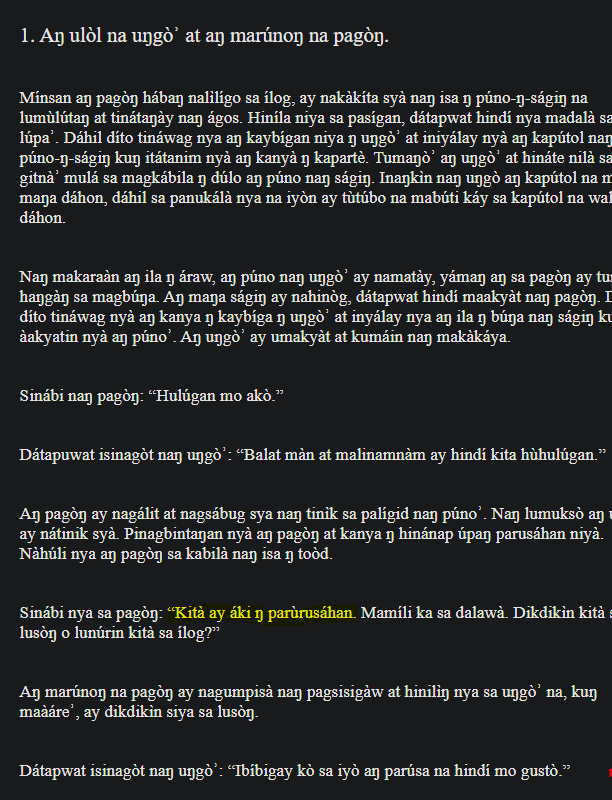@akosikoneho
"The idea that a learner should be shielded from the reality of what something is, when it takes a few sentence to explain what a stative is (it is in the word, right) is a notion with which I don't abide. If taking a minute to learn what a stative is is too hard for you, well I have bad news about Tagalog."
Or "maganda" and other ma- adjectives can simply be called ADJECTIVES. The way it's always been done by Tagalog dictionaries, grammar books, teachers, etc. How many natives or foreign students of Tagalog in this forum have the need to distinguish between adjectives/statives to progress? My guess? ZERO.
While you may be right that it's called stative verbs, they are also called adjectives by everyone else.
Moreover, your reply is a strawman. I never said statives are hard, or that ma- adjectives can't also be stative verbs. You're committing a Motte and Bailey fallacy.
Bailey: Ma- adjectives are not adjectives. They are stative verbs and the site should be changed to reflect this. Quoting you, "They're called adjectives for the lowest common denominator, not because they really are adjectives. I'd change them on this site myself but I'm not the shot caller."
Motte: Students shouldn't be shielded from reality. Stative verbs are not hard to explain.
Lastly, I notice that your username has "LockedByRequest". Hope you're not deleting your account ... over some debate. We can all benefit from having lively discussions. Would be kinda boring diba if everybody were yes-men.









